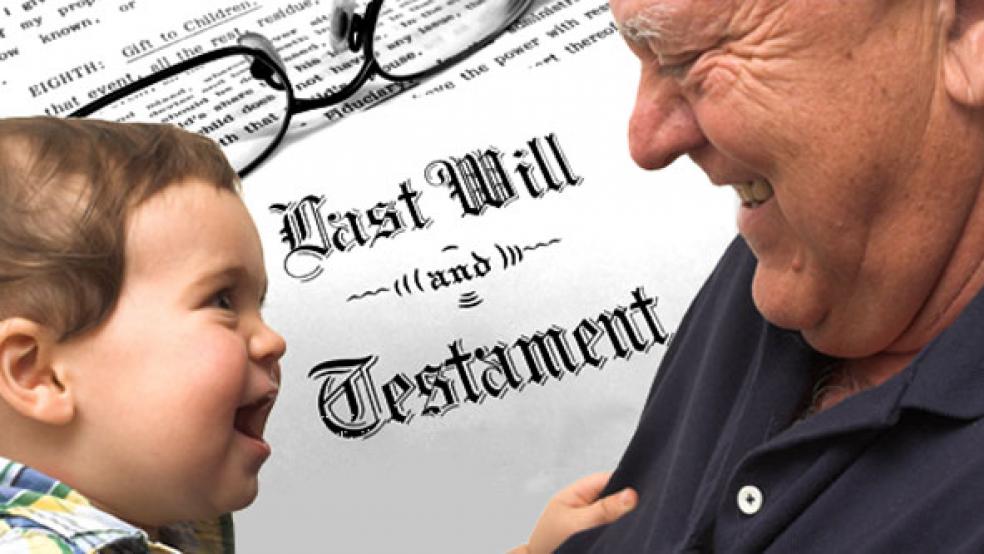Death and taxes may be inevitable, but there isn’t anything inevitable about what Congress will do this year about the federal estate tax.
Dubbed the “death tax” by foes, the estate tax died at the end of last year. It is a safe bet that it will spring back to life, but nobody knows when, or what the details will be.
Meanwhile, questions about the fate of estate and gift taxes, which generated about $23.5 billion in revenue for the U.S. Treasury in fiscal 2009, are creating unusually tricky problems for many wealthy Americans, lawyers and financial advisors. The issues can be particularly thorny for elderly or ill people trying to figure out the best way to handle large estates -- and for the heirs of wealthy people who have died this year.
These and other concerns were highlighted in a recent letter to congressional leaders from the American Bar Association tax section. Stuart M. Lewis, a Washington lawyer who heads the tax section, emphasized “the pressing need” for Congress to act soon to help people make sensible estate-planning decisions and avoid troubling “dilemmas.”
For many people subject to the tax, “planning in 2010 has either stopped because no one knows what to do, or is proceeding frantically to cover all possible outcomes in an environment in which no one knows what works,” Mr. Lewis said. “With 2010 now entering its second quarter, the latter category seems to be growing.”
To be sure, most Americans aren’t affected. According to estimates by the Tax Policy Center, a joint venture of the Urban Institute and Brookings Institution, there were only about 5,500 taxable estates for 2009. But for anyone who might be affected or is interested in estate planning, congressional inaction raises major concerns.
Here is a fresh look at where things stand and some of the tough questions confronting people.
Today’s LawIf Congress does nothing, the federal estate tax will remain zero this year and return next year with a $1 million exemption and a top rate of 55 percent on the largest estates. That can't be allowed to happen since it would would create such bizarre incentives. Meanwhile, many states have their own taxes. And the federal gift tax rate this year is 35 percent; the lifetime exemption is $1 million.
Options
One idea is to resurrect the 2009 law and make it retroactive to Jan. 1, 2010. That generally included a $3.5 million-per-person exemption and a 45 percent top rate. (But a spouse typically could inherit everything from the other spouse without federal estate tax.) The old law also typically meant that heirs would value what they inherited based on how much those assets were worth on the date their benefactor died (or, in certain cases, an alternate valuation date six months later). This is known as the “step up in basis” system.
Among the many other options: Make the 2009 law permanent but index the exemption amount for inflation. Or raise the exemption to $5 million and cut the top tax rate to 35 percent.
Tough Choices
Because Congress hasn’t acted, the executor (or trustee) for someone who has died this year doesn’t know whether the estate will owe federal estate tax and also doesn’t even know the income-tax consequences if assets are sold to meet whatever the estate’s obligations may be, Mr. Lewis said. These and other uncertainties “create extraordinary pressures on the executor and hardship and exasperation for beneficiaries.”
Suppose a very wealthy person died earlier this year. Should stocks, bonds or other assets be sold quickly from the estate to make sure there is enough cash on hand to pay whatever federal estate tax may be due? That might sound prudent if you think Congress will revive the tax retroactively to Jan. 1, 2010. But selling wouldn't look so smart if Congress doesn't revive the tax retroactively and stock prices later soar.
“This is a very tough question because we just don’t know what the law is or is going to be,” says John Olivieri, a partner at White & Case in New York. Also, the answer may vary considerably depending on the details of each estate. And there may be important state tax issues to consider.
While some lawyers think Congress may restore the tax retroactively, others are dubious. “As time goes by and in view of the upcoming elections, I believe that it is less and less likely that Congress will attempt to retroactively apply the generally unpopular ‘death.’ or estate, tax this year,” says Herbert E. Nass, a New York lawyer and author.
Should people change their wills now or wait for Congress to act? Lawyers say many clients who are relatively young and in good health are reluctant to spend large amounts of money to alter their wills, or write new ones, while there is this much uncertainty.
How are people supposed to make intelligent decisions about making large gifts to children and other lucky recipients? Someone thinking about making a big gift this year "does not know what rules might apply to the gift,” Mr. Lewis said. It’s possible Congress might retroactively change the current 35 percent gift tax rate back to 45 percent. (However, you can still give away as much as $13,000 a year to anyone you want -- and to as many people as you wish -- without having to worry about taxes.)
Some financial advisors are urging clients to set up “GRATS,” or grantor retained annuity trusts, as soon as possible because Congress might tweak the rules may later this year.
Whatever the case, if a wealthy person asks you to serve as an executor or trustee this year for a very large estate, think twice before you say yes.
Tom Herman is a former reporter for The Wall Street Journal.





